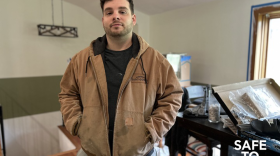New Hampshire is getting federal money to study the health effects of toxins near a Superfund site in Berlin and in homes and private wells statewide.
The state Department of Health and Human Services’ Public Health Laboratory announced Monday it will use over $5 million from the U.S. Centers for Disease Control and Prevention to monitor residents’ blood and urine samples after potential exposure to chemicals.
Its goal: Increase the state’s understanding of toxin exposure and effective interventions.
In one project, the lab will determine if people living near a Superfund site and other industrial sites in Berlin have higher levels of toxins including mercury, dioxins, and the chemical PFAS.
“There’s a lot of exposures going on, and we want to track the people there and see how they compare to the rest of New Hampshire and the rest of the United States” explains James V. Chithalen, Chemistry Program Manager at the Public Health Lab.
Scientists are already sampling hundreds of New Hampshire residents to screen for metals, pesticides, and chemicals including PFAS. Amanda Cosser, manager of the Lab's Biomonitoring Program, says after establishing this baseline, the state will embark on a public outreach campaign.
“We plan to release information on our findings and develop educational materials so we can spread those across the state, inform people who’s most at risk for coming into contact with chemicals, and reduce their exposure,” she says.
Five years later, the state plans to test for over 50 chemicals in another 400 participants to assess whether the state’s outreach is helping to reduce exposure.
The state will also be conducting studies with families exposed to lead in homes and at higher risk of well contamination because of flooding. More information on the studies can be found here.








